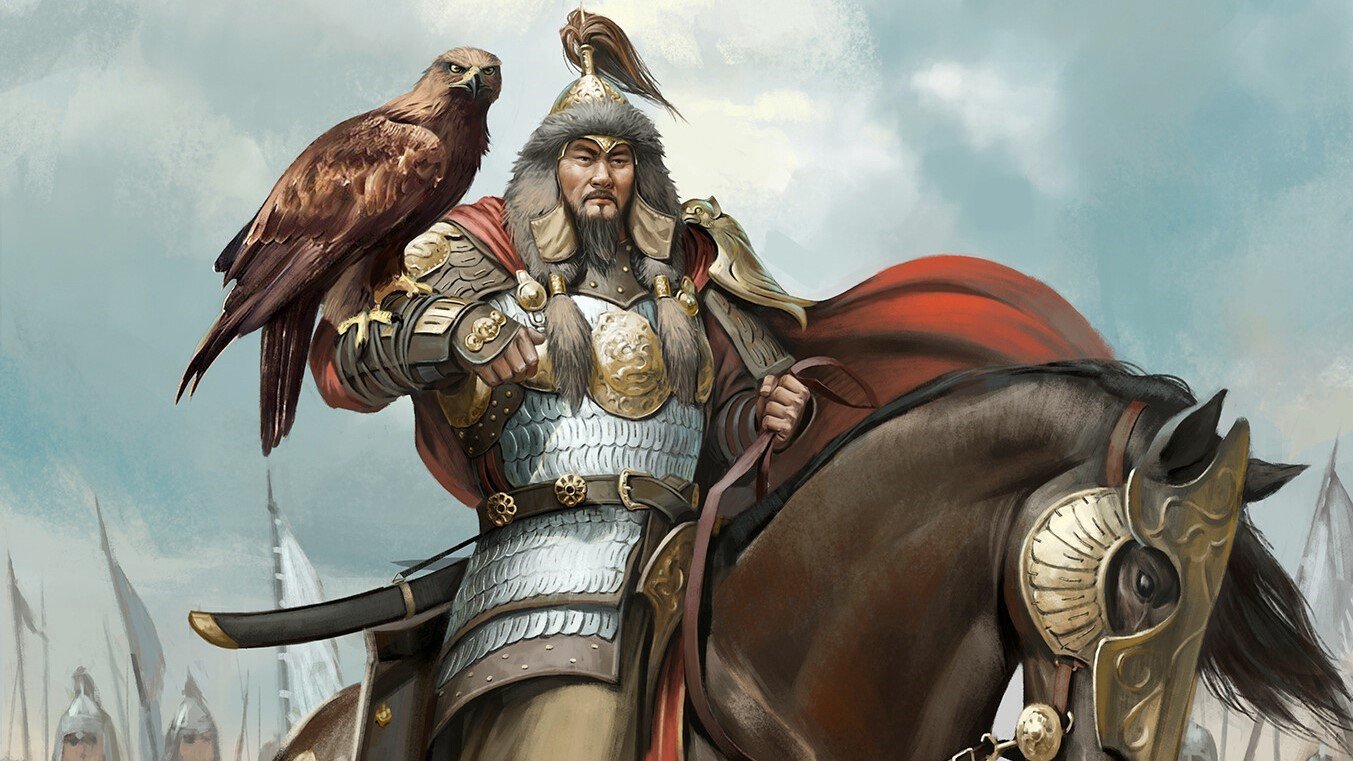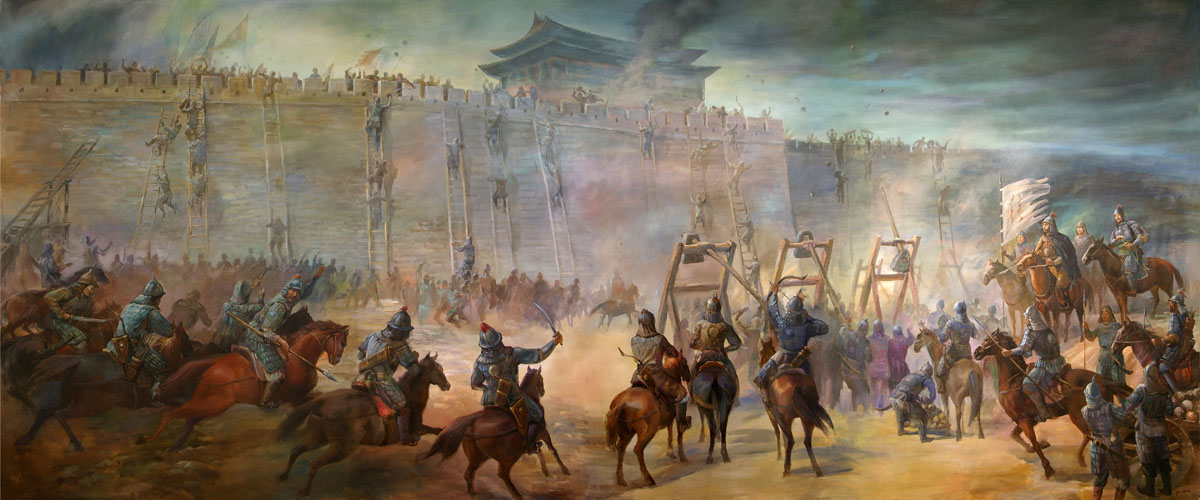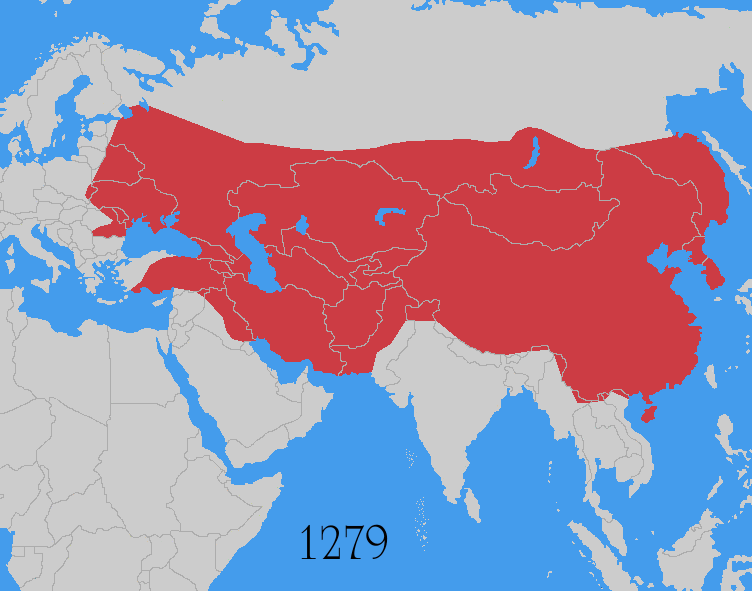Introduction
Genghis Khan was the greatest conqueror to step foot on planet Earth. He built up an empire which was thrice the size of that of Alexander "the Great" and persian empire. He and his men brought upon inhumane brutality and plunder. His reputation was that of a savage barbarian who had no respect for any religion or learning center. At its greatest extent the mongol empire under Genghis Khan contained over 40% of world population at that time spanning across 3 continents. However along with the murder and brutality, Genghis Khan was a reformer of administration and military and also was tolerant towards every religion and that became the reason why he was able to hold on to the vast area he conquered.

Childhood
Named as Temujin, Genghis Khan was born on 1162 near siberian-mongolia border. His father was a leader of one of many nomadic tribes of mongolia who were always engaged in fighting among themselves. His father was later poisoned when he turned 10 by an enemy clan. Soon after his own clan deserted his family and they were left to feed for themselves. At one point of time he was enslaved by another tribe but he managed to be free from it. He soon realised that to rule the world he would have to unite all the mongolian tribes first. He married Borte, his wife and began building his reputation as a warrior and an excellent leader and commander. He started gaining attraction and soon built up an army in which promotion was based on merit and not on inheritance.
Expansion
By 1205, he had vanquished all his rivals in Mongolia including his best friend Jamuka, who went against him. His military was unlike any nomadic army at that time. He organised his men into smaller groups and divisions and promised utmost loyalty from his men and killed anyone who he thought would be treacherous and at the same time provided great incentives to his soldiers. He banned kidnapping and enslavement of mongol men and women, made livestock theft punishable. He conducted census, formed diplomatic alliances and allowed freedom of religion which was previously unseen in any empire. He soon started campaigns against Chinese dynasties to the north of China. He ravaged countrysides, pillaged villages captured slaves and then surrounded fortified cities. He would always ask for a peaceful surrender and promise no harm to anyone if surrender is made. Those who denied it witnessed complete slaughter of men and enslavement. After terrorizing China, he moved on to Central asia where many turkic tribes joined his cavalry and horse archers. He conquered modern day iran, central asian republics, islamic Ummaiyad Caliphates, Russia, and much of Eastern Europe. Most of the kingdoms offered no resistance as they knew what fate awaited them if they would put on a flight and this was how he easily conquered so much land. He appointed governers and established a safe route for traders and merchants. During this era art and culture flourished.

Death
In early 1227, a horse threw Temujin to the ground, causing him internal injuries. He pressed on with his campaigns but his health was never the same. he died on August of that year just before his campaign against Chinese Xia empire was finished.

